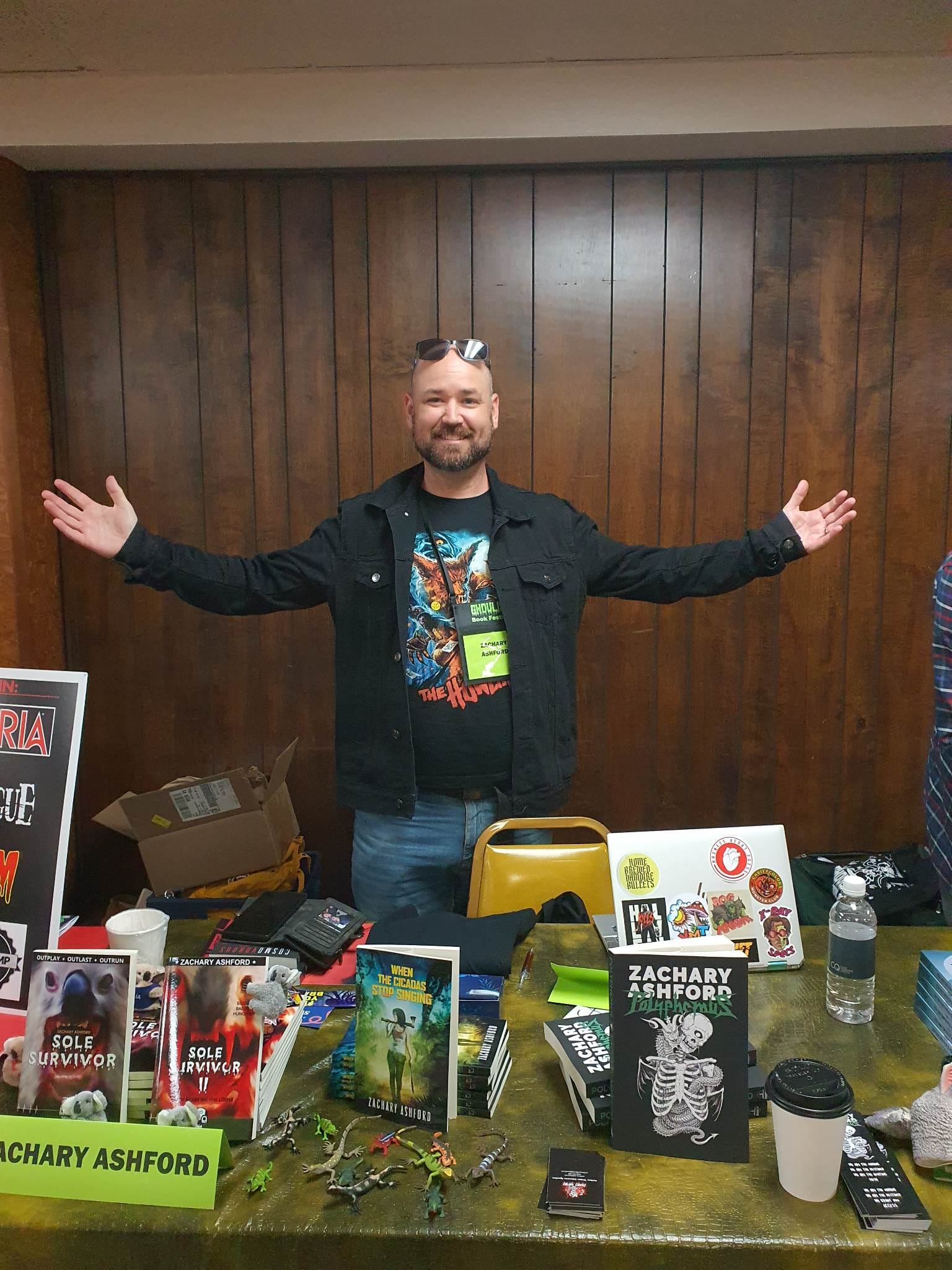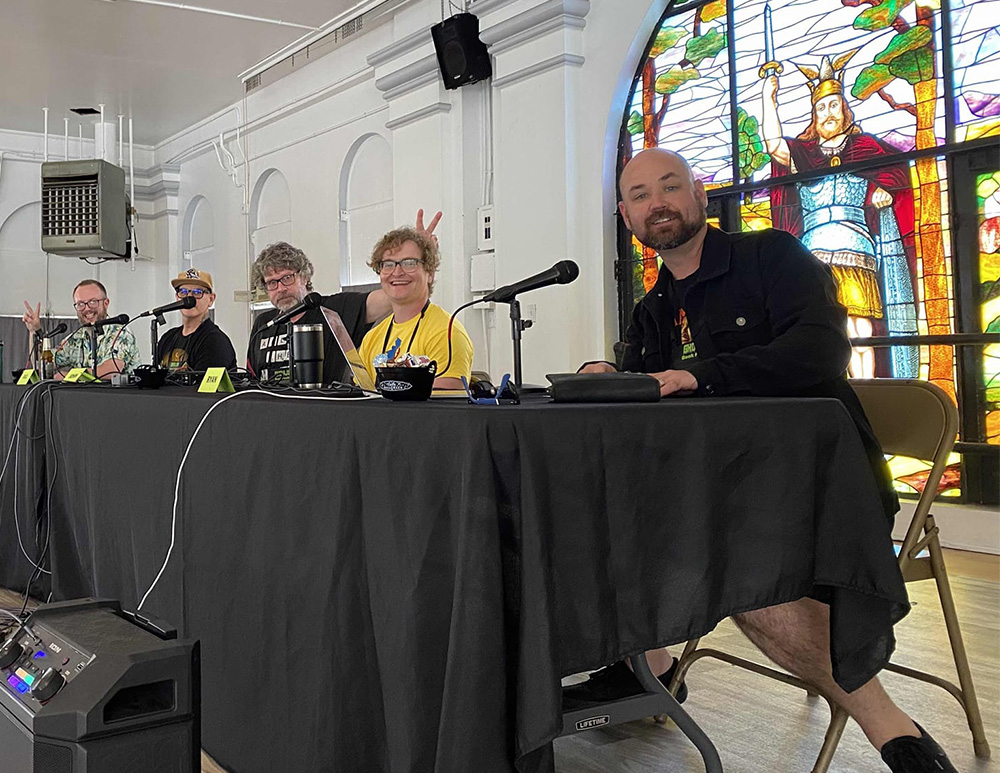Zachary Ashford

Zachary Ashford is the Aurealis-nominated author of When the Cicadas Stop Singing, a very Australian post-apocalyptic tale set deep in the hinterland beyond the Gold Coast, and several other tales imbued with the fabric of the Australian outback, culture, and humour. Among them, you’ll find stories of drop bears, lizard people, crocodiles, highway-patrolling serial killers, and heavy metal bands.
As well as writing fiction, Ashford is also the author of hundreds of online articles for Ozzy Man Reviews and has written for publications like the Sunshine Coast Daily, Aurealis Magazine, and Nerdbastards. In a prior life, he was the creative director behind Rebel FM, and part of the creative team at Hot 91 and Zinc 96.
He presents on:
- Planning and writing short stories
- Writing speculative fiction
- Writing feature articles and literary essays
- Writing Advertising and Persuasive texts
 |
 |

Zachary offers a range of fiction workshops, as well as some that are constructed around common assessments seen in the General English curriculum. He is also happy to construct something unique or customise for individual schools
The Story-Planning Process (High school)
In this workshop, students will explore the importance of tension in stories, and the role of planning in crafting dramatic tension.
They will cover
- The importance of character goals and motivation
- How setting is everything
- Internal and external conflict – and why you need both
- Freytag’s pyramid – a simple story structure for outlining plots
- Resolving the story with meaning
Writing Hacks to Make your Short Story Better (High school)
In this workshop, students will explore how to use language for purpose and make authorial choices that ‘cheat’ the criteria sheet.
They will cover
- Dialogue punctuation and attribution
- Silly similes, mad metaphors, and other common figurative language mistakes to avoid
- Showing, telling, and how to spot the difference
- Tone, mood, voice, and other stylistic choices
From Stimulus to Speculative, Spooky, or Super (Usually middle-grade students)
In this workshop, students will explore a sample of speculative fiction styles and learn ways to gather inspiration for each.
They will cover
- Everyday inspiration – brainstorming ideas from teacher-provided or personal stimulus
- Verisimilitude
A selection of the following (time-dependent)
- Monster as metaphor – using horror stories to explore real world issues
- Superheroes and social justice – using superhero fiction to highlight injustice in the world
- What if…it goes wrong? How science fiction and dystopian stories are based on possibilities and contain a kernel of truth
- The big QUESTion – how fantasy stories are about little people on big personal journeys
Mastering Monologues (High school)
In this workshop, students preparing for a monologue assessment will explore how monologues are most effective when they reveal a moment of transition or resolution in a character’s journey.
They will cover
- The purpose of the genre/trope
- Some classic examples
- The difference between monologue and simile
- The importance of internal conflict in monologue
- Structural tips
- The role of the personal pronoun in monologues
Feature Articles, Literary Essays, Online Essays, and Casual Analyses (usually senior students)
In this workshop, students will explore the ways feature articles and literary essays differ from traditional examination essays to combine a casual voice with deep analysis of texts
They will cover
- The purpose of the genre
- Structural negotiables and non-negotiables
- How casual voice doesn’t mean casual analysis
- Weaving analysis of multiple texts for cohesion
- Headlines, kickers, and final thoughts – how to start and wrap up this kind of analysis
Persuasive speeches, TED talks, and advertising copy
In this workshop, students with a persuasive assessment will explore the ways persuasion can be implemented in different texts
They will cover
- The role of the personal pronoun in building credibility and calling to action
- Ethos, logos, pathos, and Kairos
- A typical TED Talk structure
- Pitching the voice and tone to your audience
- Figurative and stylistic choices
- Making the audience the hero
- Imperative sentences and calls to action
Testimonials

Polyphemus

The Morass

When the Cicadas Stop Singing

Autotomy Cocktail

Sole Survivor II

Sole Survivor

The Encampment by the Gorge & Blood Memory
Queensland
Speaker type
- Author
- Journalist / Feature writer
- Virtual visits
Links

